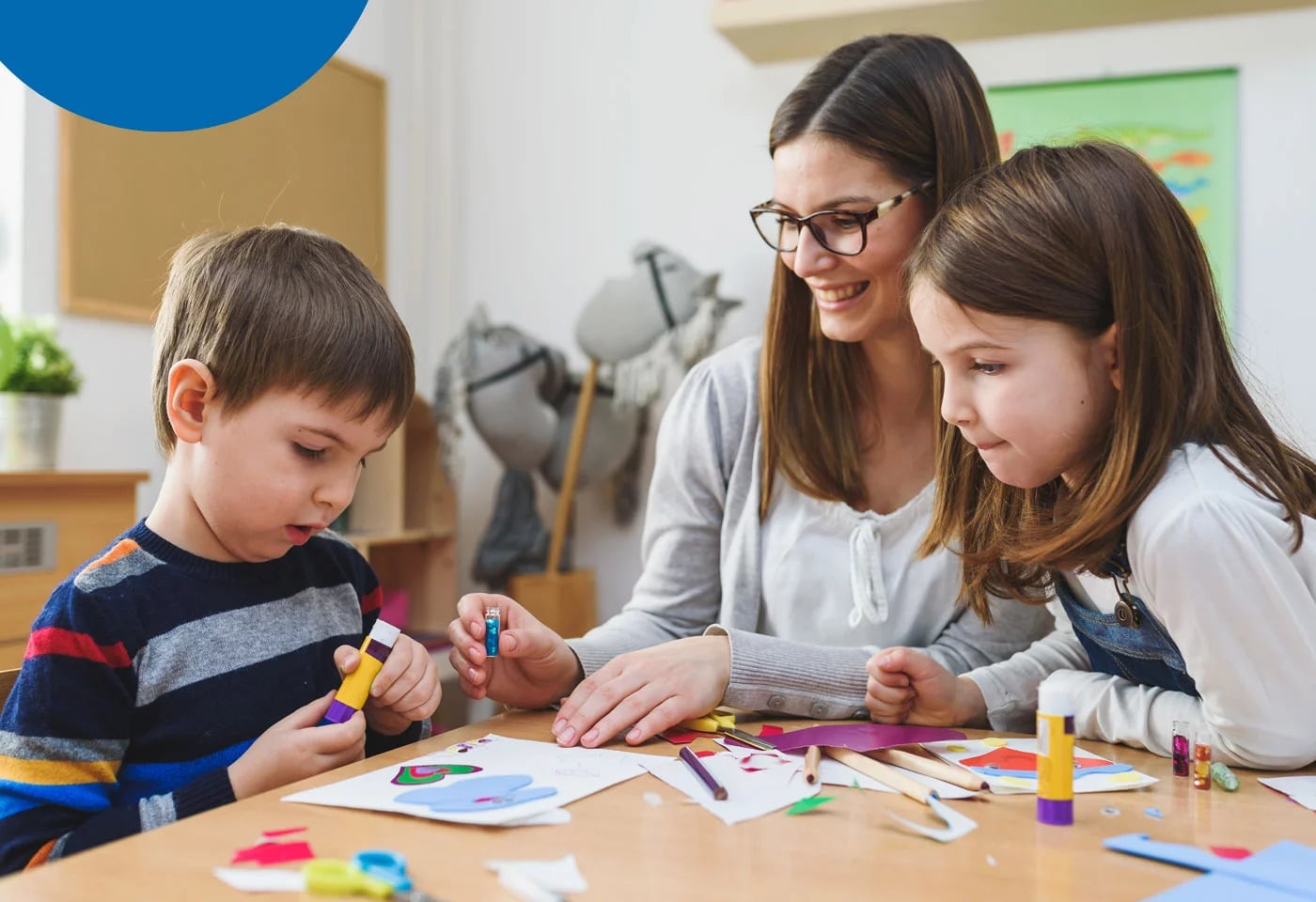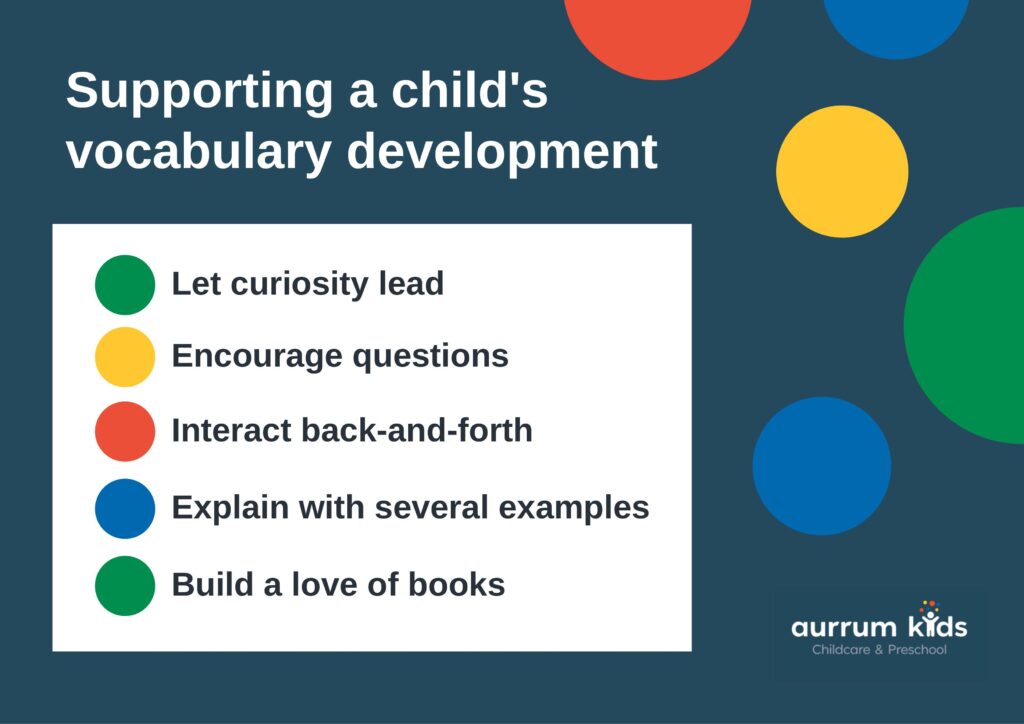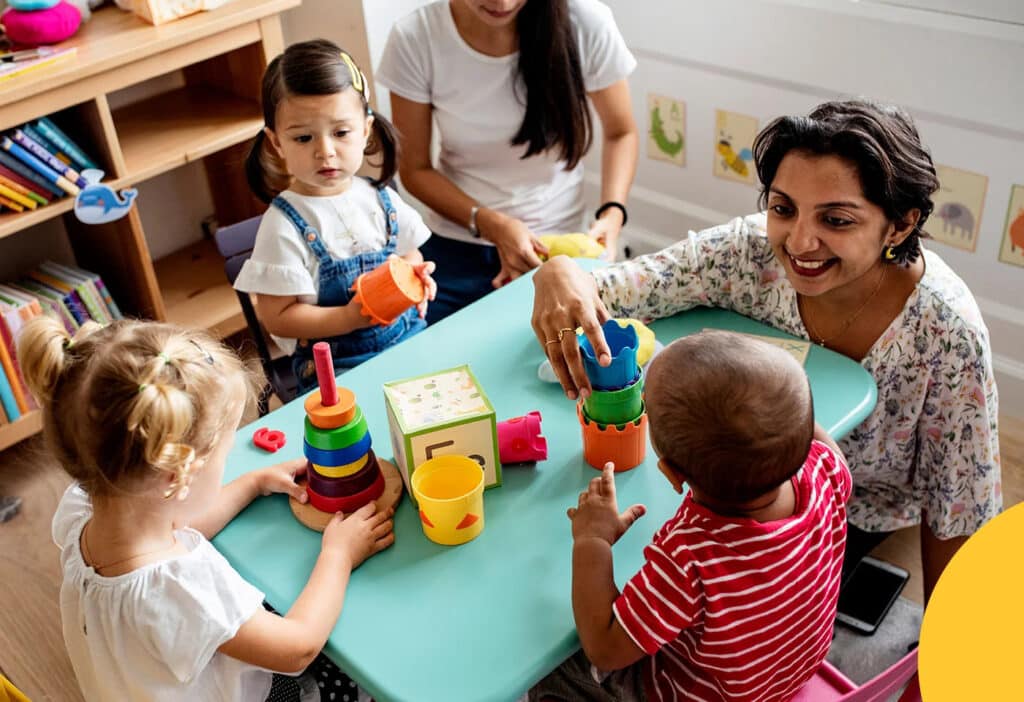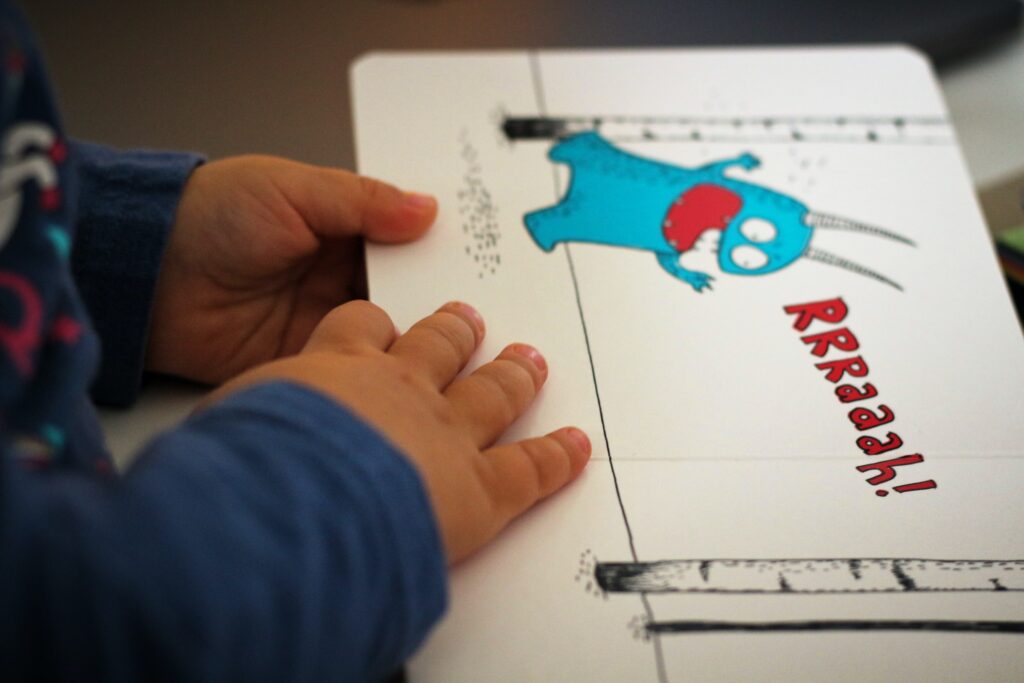Strong language skills are a key stepping stone in early life. If you’re curious about how to improve your child’s vocabulary, read on for effective tips from our early childhood educators.
Why increase a child’s vocabulary?
Consider a strong vocabulary as an important link in a chain of positive events. A child’s phonemic awareness and print knowledge (that is, knowing how words sound and look) while they’re in kindergarten directly correlates with how well they’ll be reading in primary school. And strong language skills have been linked with a number of positive outcomes in later life, including academic development and career mobility. Not only can a good vocabulary help us express ourselves clearly in our personal and professional relationships, but it also helps in understanding important nuance and context in life.
How to increase a child’s vocabulary skills
As any parent or caregiver will know, vocabulary development in early age can be incredibly fast. Amazingly, a child will learn around 5,200 root words between birth and second grade! Here’s how to support that learning of new words.
Let curiosity lead
A child’s natural curiosity and questions offer many opportunities to support vocabulary development. Here’s just one example – when a toddler points at an object, this is a chance to name and describe that object. In fact, a child’s sentence complexity and vocabulary at the age of 3.5 years is directly linked to how much they were pointing at the age of 18 months.
Encourage questions about unfamiliar words
Whether they’re baking, gardening or visiting a museum, a young child will regularly come across new words they don’t know yet. Encouraging them to ask about the meaning of new words will help them actively build up their understanding of words and how these interlink with one another.
Focus on involved conversations
Research has shown that preschool children who have more interactive conversations with adults have faster brain development and can process information more quickly. What’s most important here is the back-and-forth nature of these conversations, with an ideal eight to ten exchanges between the child and the adult. Asking and answering questions can be an effective way of building up more involved conversations.
Use new words in a few different ways
As you explain a new word, it can help to frame it in two or three different ways to help a child solidify meaning and context. For example, when explaining the word ‘important’ this could be explained in the context of how important the child is to their family; how important the child’s favourite toy is to them; and then contrasted with something that isn’t so important, like a scrap piece of paper.
Build a love of books
Reading books together from an early age is, of course, a powerful way to build vocabulary. As you read the story out you might point to words and associated objects, people or animals in the book. As children first memorise and then learn to read words, this bonding time also supports a life-long love of learning.
Vocabulary and language skills are key elements in our early learning curriculum at Aurrum Kids, which is thoughtfully developed and aligned with Victoria’s Early Learning Framework. We involve each child as a partner in their own learning journey, with diverse experiences across nature, literacy, social engagement, numeracy, emotional development, confidence building and more. To explore our early learning centres in Mornington and Ballarat, enquire with our friendly team today.



